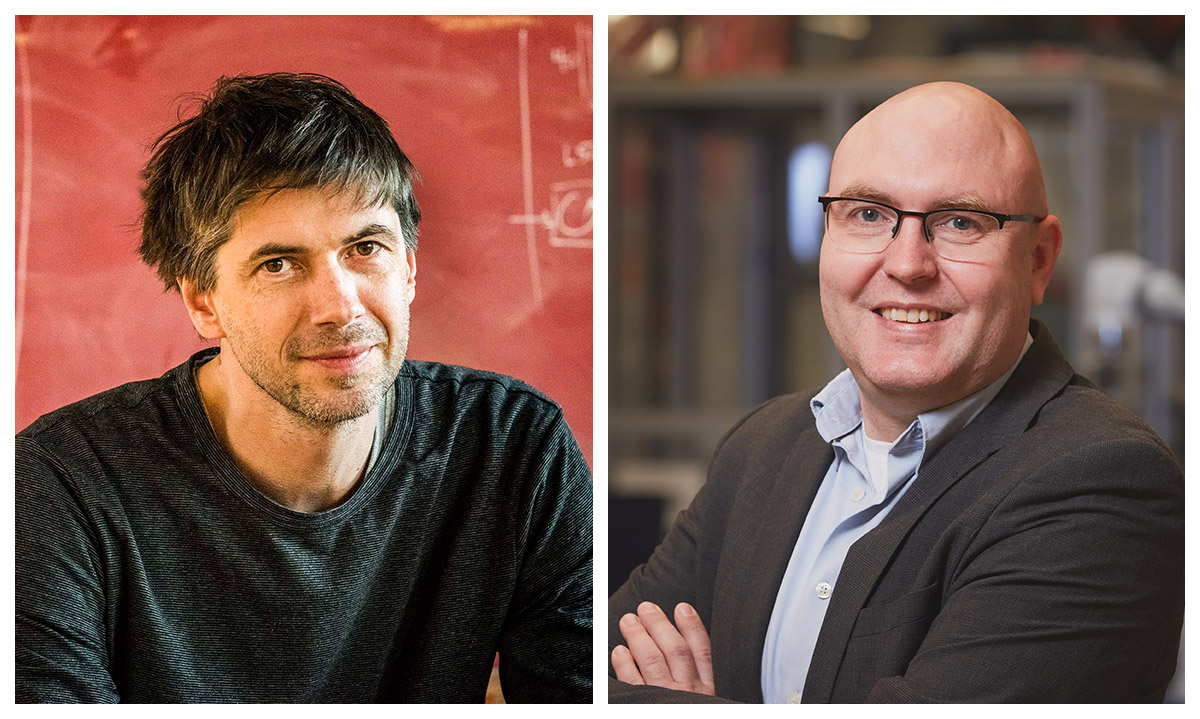Today, talking about research on disease almost inevitably includes mathematical modelling.
In recent years, mathematical modelling has helped to boost research within many disease fields, including cancer, metabolic diseases, cardiovascular diseases and COVID-19.
To boost research in this area, the Foundation focused on mathematical modelling of disease in one of its 2021 Challenge Programme themes. Researchers could apply for grants of up to DKK 60 million for developing mathematical models that contribute to improving the understanding of fundamental biological processes relevant to health and disease.
The Foundation has awarded two grants for mathematical modelling research projects in 2021.
“Mathematical models are an excellent tool for understanding the mechanisms that affect health and disease. We are therefore very pleased to support these two ambitious projects, which have the potential to generate important knowledge to benefit people’s health,” says Niels-Henrik von Holstein-Rathlou, Senior Vice President, Biomedicine & Health Sciences, Novo Nordisk Foundation.
Mathematical modelling of the health-promoting effects of gut bacteria
One grant within this theme in the 2021 Challenge Programme has been awarded to Daniel Merkle, Professor, Department of Mathematics and Computer Science, University of Southern Denmark, who is leading the research project Mathematical Modelling for Microbial Community Induced Metabolic Diseases (MATOMIC).
The research project is in tune with one of the major current trends in research for understanding human health: how the composition of gut bacteria affects health.
Perturbation in the composition of gut bacteria has been linked to the development of many diseases and disorders, including obesity, diabetes, Alzheimer’s and cardiovascular diseases. Assuming that changing the composition of the gut microbiome may counteract the development of these diseases or perhaps even cure them therefore seems reasonable.
Daniel Merkle and colleagues will try to understand how treatment-related interventions change the structure and composition of gut bacteria among individual people. One way they will achieve this is by using advanced mathematical models and experimenting with mice.
“In medical science and treating people with obesity, there has been interest in using faecal transplantation with the aim of enabling people with obesity to lose weight. Being able to perform this as a widespread procedure requires knowing how it will affect the composition of the recipient’s gut bacteria. Developing a mathematical model will improve understanding of the complexities of the composition of gut microbiome, so we can advance this research and also better understand how the composition of gut bacteria affects our health,” explains Daniel Merkle, who is receiving a grant of DKK 46 million for the project.
Mathematical model will suggest individual options for treating people with osteoarthritis
The Foundation has awarded the second grant within this theme in the 2021 Challenge Programme to Michael Skipper Andersen, Associate Professor from the Department of Materials and Production at Aalborg University. He has received a grant for the project Predictive, Multiscale, Multifactorial Mathematical Modelling of Knee Osteoarthritis (MathKOA), in which the researchers will try to tackle osteoarthritis, the sixth most common cause of disability worldwide.
Osteoarthritis results from many factors that influence the development of disease, but today researchers have only limited understanding of the individual role of these factors and how different types of treatment can address them.
In MathKOA, Michael Skipper Andersen will develop a mathematical model of knee osteoarthritis that will enable enable computer-based investigations of various treatment options and how these affect the outcome of the disorder. The goal is to improve personalized treatment options and reduce the associated societal costs when people develop osteoarthritis.
“We will develop a mathematical model for the mechanisms of osteoarthritis from the body level to the cell level. Today, treating people with osteoarthritis includes shoe insoles and other things that alter the body’s biomechanics. However, we do not know how this affects the cells or the cartilage. We need to describe this link, and the model must also improve understanding of osteoarthritis-related pain. Cartilage has no pain receptors, so the pain must come from elsewhere. Our mathematical model will improve understanding of what causes osteoarthritis-related pain and how to optimize new treatments for patients,” says Michael Skipper Andersen, who is receiving a grant of DKK 50 million for his research.
About the Challenge Programme
The Novo Nordisk Foundation established the Challenge Programme in 2014. Since then, the Foundation has awarded more than DKK 100 million every year for ambitious research projects based on a thematic approach addressing some of the major societal challenges.
In 2021, the Foundation awarded grants totalling DKK 366 million for seven research projects within the research themes. Read about all the grants here.
Read more about the Challenge Programme and previously funded projects here.
Further information
Christian Mostrup, Senior Programme Lead, +45 3067 4805, [email protected]








